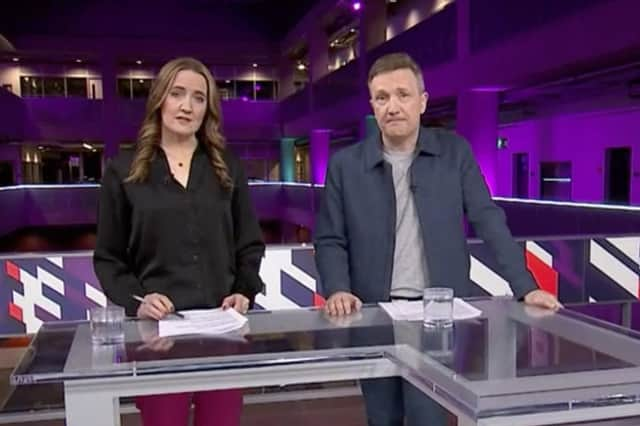No room for BBC Scotland’s viewerless TV shows in age of AI - John McLellan


The Nine was the flagship of the new BBC Scotland channel when it was launched five years ago, but a combination of difficult scheduling, competition and content led to viewing figures regularly below 2,000.
Admittedly not a like-for-like comparison, but to put that in some context this newspaper sold an average of 6,226 copies every day last year, with just over 1.4 million monthly unique users of edinburghnews.scotsman.com.
Advertisement
Hide AdAdvertisement
Hide AdBetween Reporting Scotland immediately after the Six O’clock News and the main bulletin at 10pm, there was never room for another BBC Scottish news programme for anyone except those with a specific interest in its material.
The Nine was flawed from the start because it was an expensive cop-out to avoid creating specific single bulletins at 6pm and 10pm to mix Scottish, UK and international news, as Scottish national newspapers have done for years. And for all the undoubtedly strong material its 80-strong team of journalists generated, it needed a lot of junk and inane chatter to fill an hour-long show four nights a week.
While the shorter replacement show might cut down on the waffle, it will still be in a dead slot while the real news addicts will have switched from Reporting Scotland to Channel 4 News at 7pm, rather than seek a top-up of homespun local stuff they will probably just have watched. Extending Reporting Scotland as necessary seems a more sensible way to go, as does launching a new current affairs podcast.
The channel itself, which costs over £30 million a year to run, was an easy way for the BBC to demonstrate commitment to Scotland in the face of post-referendum SNP pressure to spend 10 per cent of its total budget here, but the result was needless waste at a time when BBC resources were being squeezed.
Advertisement
Hide AdAdvertisement
Hide AdBut it is not wise after the fact to say it was always a bad idea to launch another fixed, linear channel when the rest of the world was embracing streaming, and SNP culture minister Angus Robertson is quite wrong to say the decision is “counter to growing success of screen and TV sector in Scotland,” when that success is nothing to do with domestic news consumption.
While value for money has always been a difficult concept for SNP ministers, it’s irresponsible to effectively demand that licence fees should continue to be thrown at a show hardly anyone was watching.
A much better response would have been to acknowledge a pragmatic decision based on unsustainable audience figures, but to question how the freed-up resources would be used, and whether there was an appetite for another news programme and extra editions of Debate Night.
He might even have asked whether there was a way some of that £30m could be used to support independent news production for organisations which do generate audiences but find it tough to build subscriptions because of the BBC’s free-to-access online services.
Advertisement
Hide AdAdvertisement
Hide AdIt’s fair for Mr Robertson to seek a meeting with BBC director general Tim Davie, but he needs to ask the right questions, not seek the preservation of viewerless shows on a channel designed for an analogue era in the age of AI.
